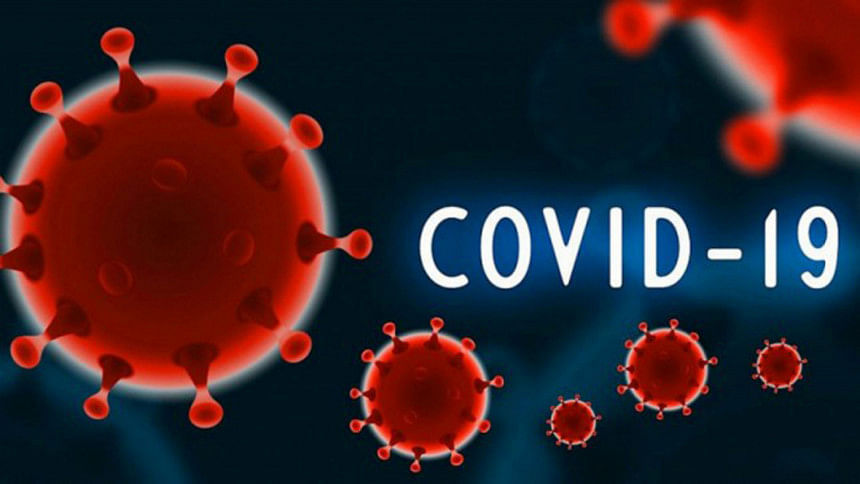Europe sees first dip in Covid-19 cases in months

The number of new Covid-19 cases declined last week for the first time in over three months, but deaths in the region continued to climb, WHO data showed yesterday.
In total, nearly four million cases of the novel coronavirus were registered worldwide during the week ending Sunday, and almost 60,000 people died from the disease during the same period, the World Health Organization said.
Europe, which on Tuesday saw its total number of coronavirus infections climb past 15 million, remained the hardest-hit region.
Last week it accounted for 46 percent of the new global cases and 49 percent of the deaths, the UN health agency's weekly epidemiological update showed.
With 1.84 million new cases registered, the caseload across the region remained staggeringly high, but WHO noted that "in the past week, for the first time in over three months, the region observed a decline of 10 percent in weekly cases."
At the same time though, more than 29,000 new Covid-19 deaths were registered across Europe -- an 18 percent jump from the previous week, it said.
The Americas, which is the second worst-hit region, meanwhile continued to show surging numbers of cases and a hike in deaths from the novel coronavirus.
Case numbers across the region grew by over 40 percent, with more than 1.45 million new cases registered, and deaths were up by 11 percent, with over 19,100 new fatalities during the seven-day period.
More than one million of the new cases were seen in the United States, which has counted nearly 11 million cases since the beginning of the pandemic.
The only region that saw a decline in the number of new cases and deaths last week was Southeast Asia, WHO said.
Worldwide, more than 1.3 million people have died of Covid-19 and over 55 million have been infected with the virus since it first surfaced in China late last year, according to a tally from official sources compiled by AFP.
PFIZER/BIONTECH COVID VACCINE 95% EFFECTIVE
Pfizer and BioNTech yesterday said a completed analysis of their experimental Covid-19 vaccine found it protected 95 percent of people against the disease and announced they were applying for US emergency approval "within days."
The US pharmaceutical company and its German partner brought further hope to a world upended by the coronavirus pandemic with the announcement, which follows one last week when they said a preliminary analysis showed the product was 90 percent effective.
Adding to the encouraging data was that the efficacy was found to be consistent across all age-groups -- a primary concern for a disease that hits the elderly the hardest -- as well as genders and ethnicities.
"The study results mark an important step in this historic eight-month journey to bring forward a vaccine capable of helping to end this devastating pandemic," said Pfizer CEO Albert Bourla.
Yesterday's news came after 170 people fell sick in an ongoing clinical trial of almost 44,000 people -- 162 of whom were in a placebo group and eight of whom received the two-dose medicine.
Out of the 170 patients who became sick, 10 developed severe Covid-19 -- nine in the placebo group and one in the vaccine group.
The new data showed the vaccine was generally well tolerated, with most side-effects short-lived and either mild or moderate. About four percent experienced severe fatigue and two percent got severe headaches after their second dose.
Older patients had fewer and milder side-effects.
Pfizer and BioNTech said they expect to produce 50 million doses this year and 1.3 billion by the end of 2021.
On Monday, US biotech firm Moderna said the two-dose vaccine it developed with the US National Institutes of Health (NIH) was 94.5 percent effective, according to a preliminary analysis.
Both vaccines use mRNA (messenger ribonucleic acid) technology to deliver genetic material to the body that makes human cells create a protein from the virus.
This trains the immune system to be ready to attack if it encounters SARS-CoV-2.
No mRNA vaccines have ever been approved, but Anthony Fauci, the scientist who led the NIH effort, told AFP Tuesday the technology had now "established itself."
But there are also important differences between the two.
For one, the Pfizer vaccine needs to be stored at -70 degrees Celsius (- 94 degrees Fahrenheit) while the Moderna vaccine only needs -20 degrees Celsius (-4 Fahrenheit), more akin to a regular freezer.

 For all latest news, follow The Daily Star's Google News channel.
For all latest news, follow The Daily Star's Google News channel. 



Comments